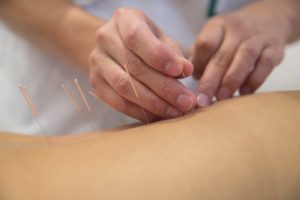Homeopathy London
Dr Stavroula Nikitopoulou
Homeopathy London
If you like the many clients I had over the past year you are frustrated because conventional medical treatment has not been effective in helping you get the health results you want and you are tired of taking medical drugs you might want to try homoeopathy.
Homeopathy is one of several holistic and complementary healing therapies that I use in my practice.
What is Homeopathy?
The word ‘Homeopathy’ is derived from two Greek words, Homois meaning similar and pathos meaning suffering. Homoeopathy simply means treating diseases with remedies, prescribed in minute doses, which are capable of producing symptoms similar to the disease when taken by healthy people. It is based on the natural law of healing- “Similia Similibus Curantur” which means “likes are cured by likes”. Dr Samuel Hahnemann (1755-1843) gave it a scientific basis in the early 19th century. It has been serving suffering humanity for over two centuries and has withstood the upheavals of time and has emerged as a time-tested therapy. The principle of Homoeopathy has been known since the time of Hippocrates from Greece, the founder of medicine, around 450 BC More than a thousand years later the Swiss alchemist Paracelsus employed the same system of healing based upon the principle that “like cures like”.
But it was not until the late 18th century that Homoeopathy, as it is practised today, was evolved by the great German physician, Dr Samuel Hahnemann. He was appalled by the medical practices of that time and set about to develop a method of healing that would be safe, gentle, and effective. He believed that human beings have a capacity for healing themselves and that the symptoms of disease reflect the individuals struggle to overcome his illness.
Hahnemann continued to experiment, noting that every substance he took, whether a herb, a mineral, an animal product or a chemical compound, produced definite distinct symptoms in him. He further noted that no two substances produced exactly the same set of symptoms. Each provoked its own unique pattern of symptoms. Furthermore, the symptoms were not just confined to the physical plane. Every substance tested also affected the mind and emotions apart from the body. Eventually, Hahnemann began to treat the sick on the principle ‘let likes be treated by likes’. From the outset, he achieved outstanding clinical success Homoeopathy is the system of treatment based on demonstrable laws and principles, which are –
- The Law of Similars – It is also called the Law of Cure. This law demonstrates that the selected remedy is able to produce a range of symptoms in a healthy person similar to that observed in the patient, thus leading to the principle of Similia Similibus Curentur i.e. let likes be treated by likes. To give a simple example, the effects of peeling an onion are very similar to the symptoms of an acute cold. The remedy prepared from the red onion, Allium cepa, is used to treat the type of cold in which the symptoms resemble those we get from peeling onion. The principle has been verified by millions of Homoeopaths all over the world.
- The Law of Single Remedy – This law directs to choose and administer such a single remedy, which is most similar to the symptom complex of the sick person at a time.
- The Law of Minimum Dose – The similar remedy selected for the sick should be prescribed in minimum dose so that when administered there are no toxic effects on the body. It just acts as a triggering and catalytic agent to stimulate and strengthen the existing defence mechanism of the body. It does not need to be repeated frequently.
In Homeopathy, as in functional medicine, the individual is viewed as a functional entity composed of three parts – physical (body), emotional (feeling) and mental (cognition) elements. Combined, these elements speak to the uniqueness of every individual and each illness within them. Therefore, each Homeopathic treatment is unique and tailored to each patient.
Homeopathic remedies have been incorporated into the daily practice of many different types of health practitioners, from medical doctors through to dentists, vets (for our furry friends), pharmacists, podiatrists, osteopaths, nurses and midwives because of their effectiveness in the treatment of a wide range of conditions. Homeopathic remedies are suitable for use in all age groups, it provides excellent side effect free treatment for a wide range of acute and chronic diseases.
See The Faculty of Homeopathy for research evidence of the effectiveness of Homeopathy as a treatment protocol.
What conditions does Homeopathy treat?
A wide range of illnesses can be treated using homoeopathy products, and it can be used in conjunction with conventional medicine as well as functional medicine. Homeopathic products rarely trigger side effects so is safe for people of all ages.
Allopathic medicine is most often used within treatment for chronic conditions that have not responded to conventional medical treatment, such as asthma, eczema, arthritis, chronic fatigue, rheumatoid arthritis, allergies such as chronic rhinitis, multiple sclerosis, migraine, hay fever and anxiety to name a few. However, it can also be useful in the treatment of acute conditions too. For more information check out A-Z of conditions from The British Homeopathic Association.
How does Homeopathy work?
Before your consultation with Dr Stavy who is a homeopathic doctor, you will be asked to complete and return an information sheet that asks questions about you, your lifestyle and your health status.
During the consultation She will spend time with you to build a picture of your medical history, general health, sleep, eating habits, emotional history, relationships with family and friends and likes and dislikes and your symptom experiences. Taking all this information into account, she is able to build a picture of your physical, emotional and mental elements that make you unique and identify the right remedy to prescribe.
The homeopathic remedy is given in a small amount – two to three pilules, or sometimes in gel, liquid or cream format – aimed at starting the body’s healing process. Through follow-up appointments, She will assess your progress and if required will make adjustments to the remedy.
Dr Stavy consults both in person and via Skype, so wherever you are in the world, treatment is possible.
Is Homeopathy for you?
Unsure if Homeopathy is right for you or your condition? Like to book an appointment? Get in touch we’d be happy to help. Click Here

I concur with other reviewers that Dr Stavy demonstrates real empathy for her patients and the carers of those patients. Her humility and willingness to explore new ideas is also refreshing.

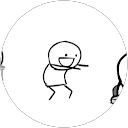

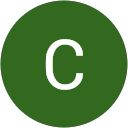






Her assistance team are very engaging and supportive.


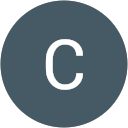



Συστήνω ανεπιφύλακτα…




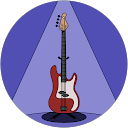













Analytical and thorough, her methodical approach, patience and perseverance make up the perfect package of a doctor with everything! 🥰
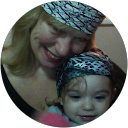




There is still some way to go, but through changes to diet, my IBS, which I had for about 15 years has gone, my sinus issues have greatly improved and I am no longer dizzy. I’ve also lost quite a bit of weight, which is a great and has improved my confidence.

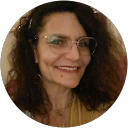

Since then, whatever problem I had, pathological, orthopedic but also psychological, I went to Stavroula!!
Always with a sweet talk, with patience but also with scolding whenever needed!
Thank you my dear!!!
Be strong!!!




I am happy with Dr Stavy and highly recommend her as a Functional Medicine doctor

A big thank you to the best doctor in London.

My experience with her has been nothing short of exceptional. She keeps helping my son and I appreciate that. She is a dedicated and knowledgeable practitioner who truly cares about her patients’ well-being. I am grateful for her expertise and support, and I highly recommend her to anyone seeking a holistic and effective approach to healthcare.





Looking to Book a Homeopathy Consultation?
Find out if Homeopathy is an option for your treatment, get in touch, we’d love to answer your questions.
About Homeopathy
The word ‘Homoeopathy’ is derived from two Greek words, Homois meaning similar and pathos meaning suffering. Homoeopathy simply means treating diseases with remedies, prescribed in minute doses, which are capable of producing symptoms similar to the disease when taken by healthy people. It is based on the natural law of healing- “Similia Similibus Curantur” which means “likes are cured by likes”. Dr Samuel Hahnemann (1755-1843) gave it a scientific basis in the early 19th century. It has been serving suffering humanity for over two centuries and has withstood the upheavals of time and has emerged as a time-tested therapy.
The principle of Homoeopathy has been known since the time of Hippocrates from Greece, the founder of medicine, around 450 BC More than a thousand years later the Swiss alchemist Paracelsus employed the same system of healing based upon the principle that “like cures like”.
But it was not until the late 18th century that Homoeopathy, as it is practised today, was evolved by the great German physician, Dr Samuel Hahnemann. He was appalled by the medical practices of that time and set about to develop a method of healing which would be safe, gentle, and effective. He believed that human beings have a capacity for healing themselves and that the symptoms of disease reflect the individuals struggle to overcome his illness
Hahnemann continued to experiment, noting that every substance he took, whether a herb, a mineral, an animal product or a chemical compound, produced definite distinct symptoms in him. He further noted that no two substances produced exactly the same set of symptoms. Each provoked its own unique pattern of symptoms. Furthermore, the symptoms were not just confined to the physical plane. Every substance tested also affected the mind and the emotions apart from the body.
Eventually, Hahnemann began to treat the sick on the principle ‘let likes be treated by likes’. From the outset, he achieved outstanding clinical success Homoeopathy is the system of treatment based on demonstrable laws and principles, which are –
- The Law of Similars – It is also called the Law of Cure. This law demonstrates that the selected remedy is able to produce a range of symptoms in a healthy person similar to that observed in the patient, thus leading to the principle of Similia Similibus Curentur i.e. let likes be treated by likes. To give a simple example the effects of peeling an onion are very similar to the symptoms of an acute cold. The remedy prepared from the red onion, Allium cepa, is used to treat the type of cold in which the symptoms resemble those we get from peeling onion. The principle has been verified by millions of Homoeopaths all over the world.
- The Law of Single Remedy – This law directs to choose and administer such a single remedy, which is most similar to the symptom complex of the sick person at a time.
- The Law of Minimum Dose – The similar remedy selected for sick should be prescribed in minimum dose so that when administered there is no toxic effects on the body. It just acts as a triggering and catalytic agent to stimulate and strengthen the existing defence mechanism of the body. It does not need to be repeated frequently.
References:
Faculty of Homeopathy The British Homeopathic Association.
NHS – https://www.nhs.uk/conditions/homeopathy/
Homeopathy Doctor London
— Dr S Nikitopoulou – General Medical Practioner (GMC Reg: 6092503) is a London based Homeopath With more than 15 years in medical practice, she has successfully treated patients with conditions such as infertility, thyroid disorders, hormonal dysfunction, heart disease, digestive disorders, food intolerances (children and adults), chronic fatigue, heavy metal toxicity, depression and other mental disorders. And, in the preventive space, she has been managing patients’ health in the arenas of women’s wellbeing and anti-ageing
What is a homeopathic doctor?
Homeopathy is a form of alternative medicine used by different kinds of practitioners. Remedies utilized by homeopathic doctors may include essential oils, herbs and compounds, tinctures, massage, aromatherapy, or even acupuncture.
As with most medical professionals, homeopathic doctors have the opportunity to help people feel better in their bodies and the emotional rewards of being able to do so are often great. Not all cases end happily, however, and there is stress and emotional investment associated with this career. Homeopathic doctors often are self-employed and developing a patient base may be difficult. Many doctors are able to command high salaries, though hours may be long and irregular.
A Doctor of Medicine (MD) or Doctor of Osteopathy (DO) is required to become a homeopathic doctor, as is official licensure and experience in the field of health care. Listening, critical thinking, decision-making and complex problem-solving skills are also needed. A service-oriented attitude and familiarity with a variety of different software applications are also useful.
Obtaining a Bachelor’s Degree
Graduating from a college or university with a bachelor’s degree is generally considered a prerequisite for admission to medical schools. While some students focus on a pre-medical curriculum in college, others major in a variety of other subjects. As long as certain prerequisites are met, medical schools usually are open to considering students with any educational background. Prerequisites include completion of specific math, science and humanities courses and completion of a bachelor’s degree program with a certain GPA.
Attending Medical School
Homeopathic doctors have varying backgrounds. Some are medical doctors while others are naturopaths, doctors of osteopathy or chiropractors. Schooling usually takes a minimum of four years to complete. However, many MD programs end up lasting eight years with the residency and/or internship requirements. Naturopathic medicine programs contain much of the same curricula as medical schools, with the inclusion of alternative medical practices, such as homeopathy.
Is homeopathy better than allopathy?
Homeopathy is way considered best when it comes to safe and sound treatment as it is devoid of any kind of side effects or after as in allopath and indulges into the recovery of the disease or ailment as in Ayurveda where you need many sessions to cure the disease. Though they all do the same job of eliminating the root cause of the disease, but Homeopathy heals with ease and eliminates other root causes to make to fit and healthy.”
The duration course is more than the allopath treatment but less than the Ayurveda as there are certain exercising and
healing sessions, meditation and dosage of natural herbs to cure the diseases, which might take time as every natural remedy is not available at one place.
Every individual responds in a different manner to different medicines and treatments. This uniqueness of the symptoms and reactions brings in the difference in the remedy prescribed to each one of them.
Whereas in allopathy the concept to treat the disease with the help of drugs, in Ayurveda healing is facilitated with the amalgamation of five elements of nature and in homeopathy the objective is to bring about a change in the human body to make it responds in a better way to get the system right in place.
Ayurveda is very much into the healing that particular body part for say and allopath also do the same but comes with various side effects and risk of reactions to other parts of the body. But homeopathy is considered completely safe as it does not react in an other way to the body, instead helps to examine the past ailments and new developments in the body with proper and regular dosage of the drug prescribed.
“Homeopathy is a medium through which one definitely gets rid of all their disease with a promise to not occur again in life as its main objective to eliminate the root cause and help a person cure in a much better way


